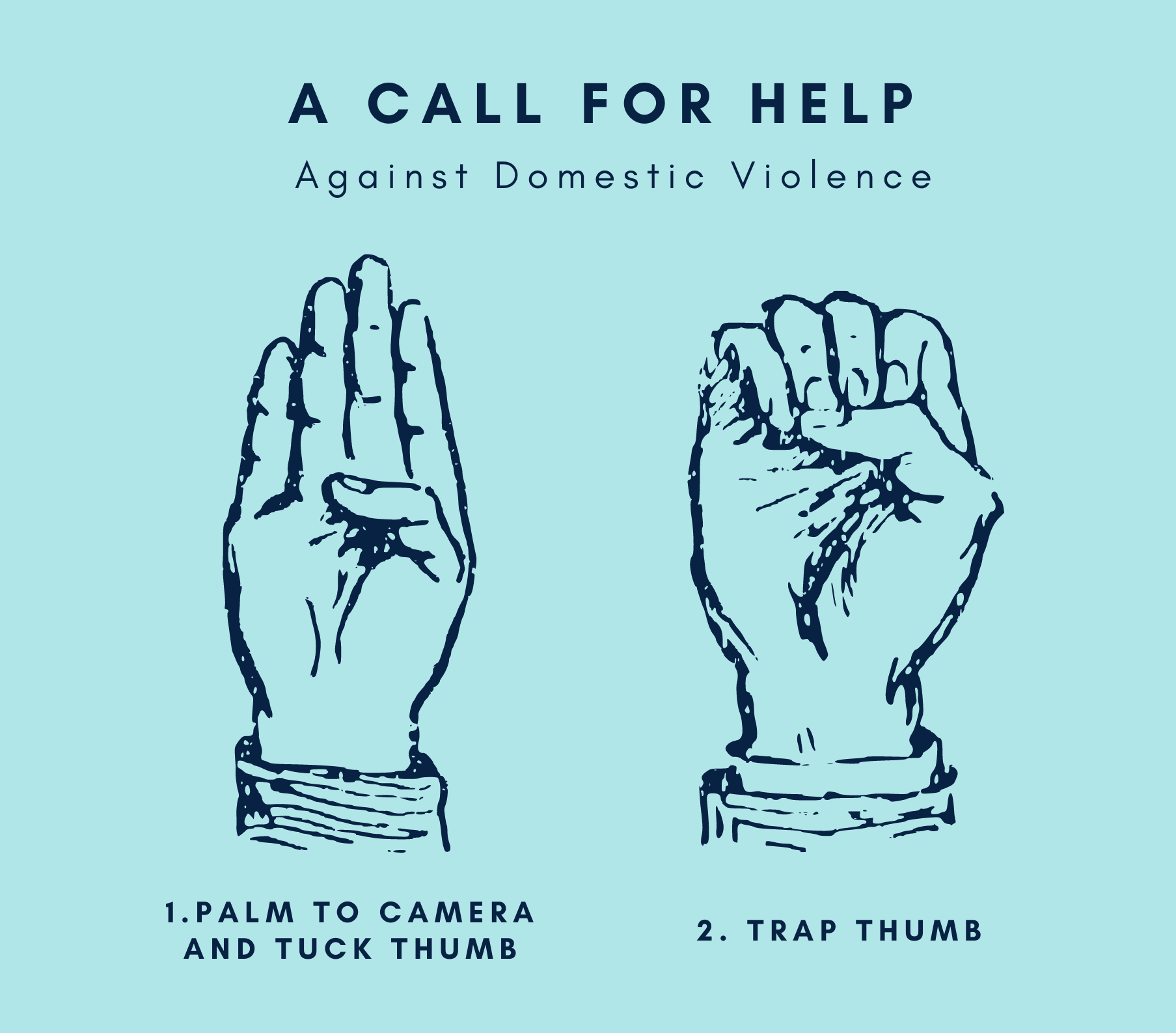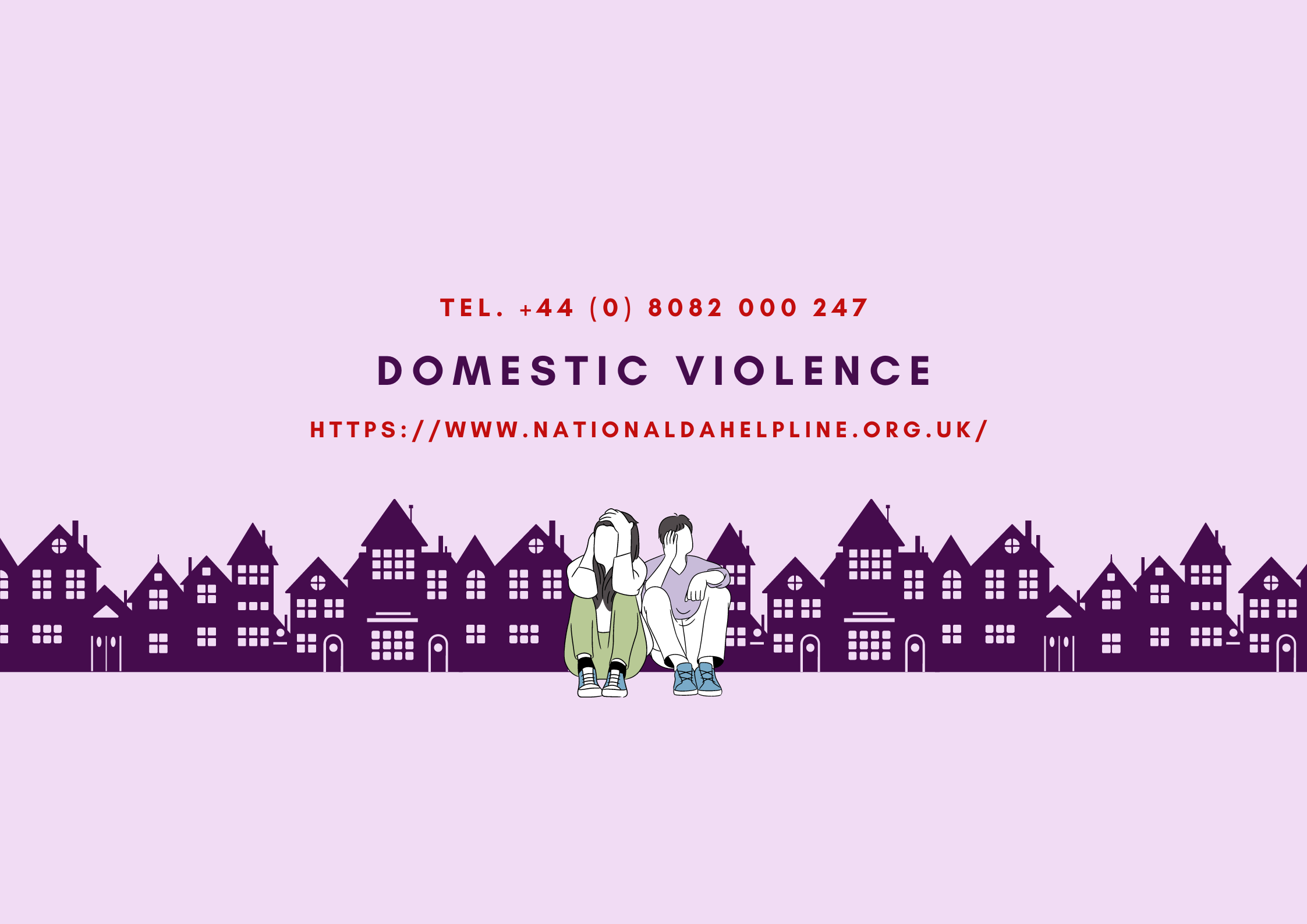By Beth Astley, Second Year, Biomedical Sciences
Palm open facing out with thumb folded in, then remaining fingers close over thumb to trap it in a fist. To some, this gesture may have no meaning whatsoever, but to domestic abuse victims, this could mean escape from a perpetrator and finding safety. If you see this signal in public or in media, notify the relevant authorities immediately, as you could be saving someone’s life.
In the UK, domestic abuse is characterised by any aggressive or violent behaviour in the home, usually involving the abuse of a current or past partner. It is said that one in three women (aged 16 to 59) have experienced some form of domestic abuse in their lifetime. This devastating statistic highlights the need for research into prevalence of abuse and, now that we are remaining at home more than ever, to spread awareness.

One such study was conducted in May 2020, led by Professor Gene Feder of the University of Bristol in collaboration with experts in Brazil and Nepal. It indicated that calls to domestic abuse helplines, especially in South Asia, have doubled globally between April and June of 2020, in comparison to the previous year.
In Brazil, the calls were already increasing significantly prior to the pandemic due to a loss of funding for support programmes, as well as the health and social care sector. Nevertheless, this huge rise in cries for help highlights the necessity of more widely available access to support systems and safe spaces, which should be available in any healthcare facility.
The pandemic has not only disrupted the economy, education and social interactions, but also shed light on many underlying issues within the overwhelmed NHS. From the transition to remote phone appointments, it has become nearly impossible to retain confidentiality when trying to report an incident of abuse, as the perpetrator is likely to be within the vicinity.
Victims of domestic abuse, who need the support and care just as much as any other patient, are not being acknowledged
This has become evident, as the intake in the emergency department for domestic violence cases has notably decreased. Professionals know that domestic abuse is still occurring at unprecedented levels, so this data suggests that during the pandemic there has been reduced access to healthcare, with longer waiting times and shifting priorities differing.
It is predicted that even after the pandemic healthcare may continue to use an online consultation, blended with in person appointments. Victims of domestic abuse, who need the support and care just as much as any other patient, are not being acknowledged.
Professor Feder argues ‘we don’t need to wait to provide safe spaces for disclosure in healthcare settings, or to invest in advocacy and support services that are fully integrated with healthcare…we must not let the abused slip under the radar.’
It’s crucial to identifying this ‘pandemic within a pandemic’. We must address the need for more services that promote confidentiality, increase abuse visibility and adapt to these uncertain times where potentially the only contact a victim has with the outside world is healthcare.
Bristol University's Science of Happiness course shown to improve students' mental health
Treatment for addiction: How are patients coping with the pandemic?
With social media sites, such as Tik Tok and Instagram, continuing to thrive and develop, it is crucial for people to be aware of their social responsibility to look out for these signals and help survivors to escape their nightmare.
If you or think someone you know may be in danger and affected by domestic abuse, the National Domestic Abuse Helpline is a free and secure hotline, open 24 hours to provide support.
Available at: https://www.nationaldahelpline.org.uk/ or call on +44 (0) 8082000247.
Featured Image: Epigram / Julia Riopelle (CANVA)
If you are a victim of domestic abuse, or know that it is taking place, contact helplines at https://www.nationaldahelpline.org.uk/ or 08082000247.









